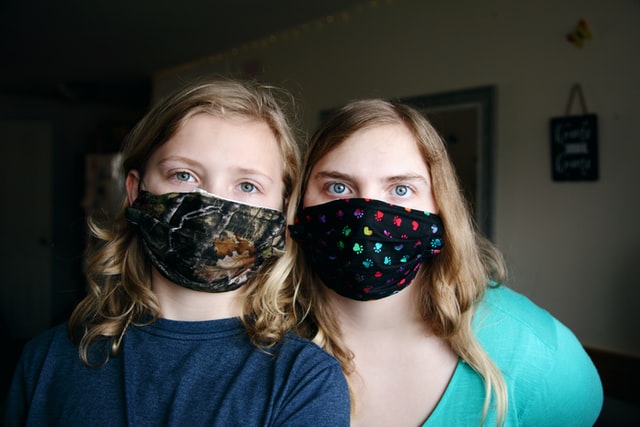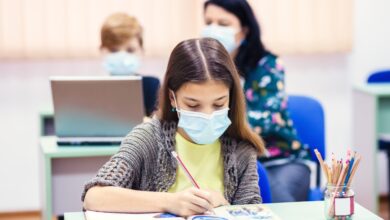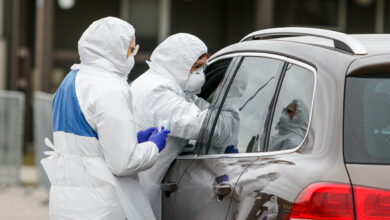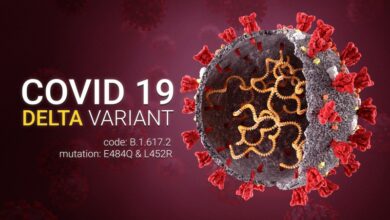Coronavirus Face Masks: Everything You Need To Know

Facemasks are now part of the new common after the Covid-19 pandemic. Extensive exposure to facemasks can lead to skin complications such as acne and maskne. With every dawn, scientists keep discovering more about the spread and prevention of Corona as all efforts focus on which country will announce the cure first.
Reasons You Need To Wear a Mask for Preventing Against Corona
Read More »Did you know that most of the initial patients of Corona were asymptomatic yet interacted freely with others, and that is what led to the spread? This means that while you may feel safe and healthy because you do not display any Corona symptoms, you may be exposing others around you towards potential danger.
If you are unaware that you are sick, how will you manage to seek medical attention? The same analogy can be used to argue out with a situation where a patient feels wrongly quarantined because they do not feel sick in the first place.
How Does Wearing A Facemask Keep You Safe from Corona?
The most misplaced interpretation of the role of facemasks is the idea that a mask can directly prevent you from contacting disease-causing germs in the air. Most airborne diseases spread from one person through proximity which the masks reduce, but does not prevent Corona.
If anything, the mask is meant to capture your breathing particles to minimize exposure with people close to you. Keep in mind that different types of face masks are sold close to you or even online. Most of these are cloth-based and single-use masks.
Nonetheless, a facemask like the N95 can filter air particles because they have a tight seal close to the face. The good news is that while maintaining a reasonable social distance, well, you can trust that a facemask will work magic to filter infectious particles in the air. It is all about proximity.
How Safe Are You?
When using a mask, know that the purpose is to protect everyone around you. Nonetheless, certain additional tips can go a long way in heightening your safety. For example, when it comes to PPE specifically, nothing beats the N95 masks.
For DIY ideas, you can think about the welfare and health of your family be sewing skin-friendly cloth masks. The best part is that cleaning homemade or face-covering masks keeps them fresh and healthy for your face area. However, when you desire the purposes of a clinical, surgical mask, understand that their filters can keep out both large and small particles in the air.
The Proper Procedure to Wearing a Face Mask
The most important thing is covering your nose and mouth. Therefore, ensure you are wearing a fitting mask, thereby avoiding the slightest exposure. Even the tiniest droplet from the surrounding has the potential of causing infection.
There are various types of covers, therefore putting one on depends on in its design. For the masks with a pair of stretchable straps, you have to place the straps around your ends. Other masks have two pairs of straps, which you have to tie a pair behind your head, and the other pair at the nape of the neck.
Use the tips of the thumb and index finger to adjust the mask until you properly cover your face and nose. Also, avoid shifting the face covering as you may infect yourself with the virus. If possible, tuck the lower part of the covering beneath your chin to prevent shifting.
Wear Your Mask at All Times in Public Spaces
It would be best if you put on a face mask at any time you are out in public spaces. This includes public vehicles. When driving, you can take off the covering, but when sharing a ride with other people, you have to cover your nose and mouth.
Keep in mind that Corona does not only spread while sneezing but also when someone talks, yells, laughs or sings. The point is to keep the transmission at a minimum. Suppose an infected person sneezes and is not wearing a mask, chances of being infected are low if you have a cover.
If both of you have masks, the transmission is rare. Note that face masks are not alternatives to social distancing. You can still get the infection if you have a cover but do not maintain physical distance, thus putting your wellbeing and that of your family at risk. It would help if you only took off your mask when at home, in your vehicle, or alone in the office.
How Long You Should Wear a Face Mask
Typically, a mask limits your breathing. Many folks breathe using their mouths when wearing masks. Avoid wearing your masks while at home or alone in your car and other private premises.
Long periods of wearing face coverings can cause suffocation. Also, discard the cover if you touched it with dirty hands, as it can cause not only Corona but also other infections. Aside from that, discard your mask if it gets wet.
Following statistics from the WHO, Covid-19 lives longer on wet surfaces, thus increasing the chances of transmission. Most times, masks become saturated by the moisture from your breathing. This means that after some time, you should wash your item if it is reusable, or get rid of it if it is non-reusable.
You Should Clean or Discard Your Mask
Some types of face masks, for instance, the medical-grade masks, cannot be re-used. It is because they are not easy to clean. However, cleaning the cloth-based masks using a disinfectant is possible.
To do this, use household bleach mixed with the right amount of room-temperature water. Soak the cloth for at least ten minutes, as the bleach filters out disease-causing microorganisms from the fabric. After that, wash the fabric with hot water and allow it to dry under the sun or high temperatures. High temperature suppresses the viability of infectious microorganisms.





